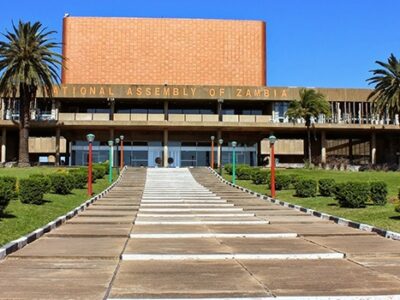Digital literacy in Zambia is critical for economic growth, education, and social development.
However, significant challenges remain that need to be addressed by the government and various stakeholders.
Despite the surge in access to technology, such as phones and computers, many Zambians still lack access to these devices, internet connectivity, and essential digital tools.
This has resulted in a noticeable skills gap, highlighting the need for training in basic computer skills, online safety and digital citizenship.
Stakeholders, including the Internet Society Zambia Chapter (ISOC), have called for digital literacy to be integrated into school curricula to equip students with essential skills.
ISCO Founding president, Levy Syanseke stressed the importance of improving internet connectivity and digital infrastructure, noting that these are vital for widespread digital literacy.
“There is low internet penetration and low digital literacy rates, and the efforts by the government and stakeholders have been insufficient. The focus has been on social media usage rather than leveraging the internet for economic benefits,” Syanseke said.
He pointed out that while mobile penetration is high, digital literacy and internet usage remain low, emphasizing the need for collaboration between the government, private organizations, and stakeholders.
Syanseke proposed several improvements, including supporting initiatives that bridge the digital divide, offering digital education programmes with offline access to educational content, and using alternative energy solutions to address power issues.
Given Zambia’s linguistic diversity, it has been recommended that digital content be made available in local languages to increase accessibility.
Additionally, addressing disparities in access to technology and digital skills between urban and rural areas is essential.
Clement Sinyangwe, President of the Information, Communication, and Technology Association of Zambia (ICTAZ), highlighted several initiatives aimed at improving digital literacy in the country.
“Government programmes, such as the ‘Smart Zambia’ project, aim to enhance digital literacy and infrastructure, including the distribution of computers to schools,” Sinyangwe said.
He echoed Syanseke’s sentiments about the need for private sector involvement in digital literacy efforts, citing companies like Zambia Telecommunications Company, which are already offering digital literacy training.
Sinyangwe mentioned that non-profit organizations, such as the Zambia Digital Literacy Project, provide training and resources, while local initiatives, like digital literacy clubs, promote digital skills in communities.
“By addressing these challenges and supporting initiatives, Zambia can enhance digital literacy, thereby promoting economic growth, education and social development,” he stated.
Sinyangwe stated that the responsibility for digital literacy does not rest solely with the government but also with citizens, organizations and private schools.
He noted that private schools and organizations can help finance and support digital literacy initiatives, complementing government efforts.
“We can leverage Public-Private Partnerships (PPPs) to mobilise resources, expertise and funding to support digital literacy programmes,” Sinyangwe added, stressing the importance of collective action to champion digital literacy in Zambia.
Irene Chikatula, a Social and Public Affairs Analyst, noted that the Zambian school curriculum is still in its infancy regarding digital literacy.
“A few fortunate pupils in urban areas learn the theoretical basics of computers, often without access to the actual devices,” Chikatula said.
She highlighted the case of Rufunsa district, where more than half of the shortlisted applicants for Census jobs were disqualified after failing a digital aptitude test due to a lack of digital literacy.
Chikatula emphasized the need to introduce skills-based subjects or integrate skills learning into existing subjects.
“This is not just about the National Census, which occurs every ten years. School pupils need exposure to technical and skills subjects to be well-prepared for the professional world,” she said.
According to the Zambia Information and Communications Technology Authority (ZICTA), there were 6.52 million internet users in Zambia at the start of 2024, with internet penetration at 31.2 percent.
The country also had 3.55 million social media users as of January 2024, representing 17 percent of the population, which stands at slightly over 20 million.
Additionally, 16.40 million cellular mobile connections were active in Zambia, equating to 78.7 percent of the total population.
WARNING! All rights reserved. This material, and other digital content on this website, may not be reproduced, published, broadcast, rewritten or redistributed in whole or in part without prior express permission from ZAMBIA MONITOR.












Comments